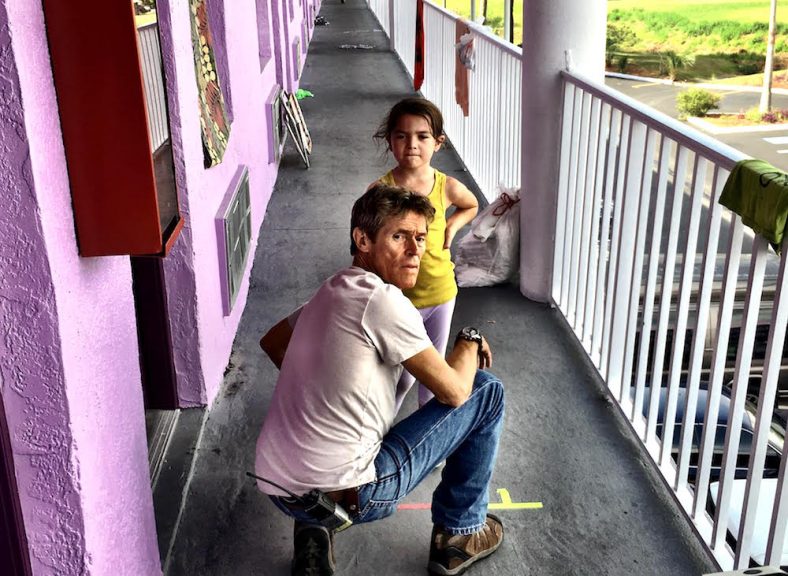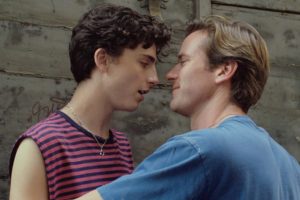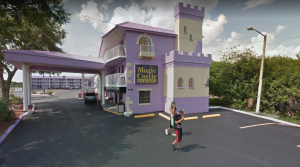Thursday night’s films were number 23 and 24 for me at this year’s Atlantic International Film Festival, not counting the shorts program. I’ve seen a collection of strong Canadian and independent American films and some of the year’s best international fare, and somehow managed not to get sick, though it was a little touch and go there at the beginning of this week. For the record, my favourite films at the festival were the two below, The Square, Suck It Up, A Fantastic Woman, and Sweet Virginia.
Many thanks to the AIFF programmers, organizers, and the volunteers for continuing to make this event the highlight of the Halifax film-lover’s calendar. For all my reviews and ramblings from this year’s festival, you can click here, and I’d also recommend a visit to the Carbon Arc blog for more AIFF movie reviews from my fellow programmers and volunteers at the independent film series.
Speaking of Carbon Arc, the fall season starts up on Friday, September 29, with a French film, The Midwife, and continues into October. On the slate for Friday, October 6 is The Commune, the newest film from Danish auteur Thomas Vinterberg.
Call Me By Your Name
Luxuriously erotic? Deliciously sensual? I’m compounding my descriptors to produce some kind of truth about Luca Guadagnino’s new film, which fulfills the promise that was his second feature, I Am Love, with another look at a romantic connection that won’t be denied. Call Me By Your Name feels like the film he may struggle to ever better.
We’re somewhere in Northern Italy in the summer of 1983. The surroundings couldn’t be more verdant and delightful—a villa owned by an American academic (Michael Stuhlbarg) and his French wife (Amira Casar). They invite a graduate student, Oliver (Armie Hammer), to come stay for six weeks. Their 17-year-old son, Elio (Timothée Chalamet), is at first annoyed by the older man’s presence, and then attracted to him.
There’s not much more about the plot I’d care to report, and besides, this isn’t a film overly concerned with plot. It builds suspense by having one character, looking forward to a midnight rendezvous, check his watch repeatedly through the day. It channels the best of European romantic cinema, infused with a Rohmer-esque sense of character and a Bertolucci-esque sense of natural beauty and fine detail. Young men and women smoke and don’t wear very much. Windows and doors remain open to the Italian breeze, day and night. Everyone’s multilingual, spilling in and out of German, Italian, French, and their impoverished linguistic cousin, English. Bicycles rides are frequent, with the bikes discarded or leaned up against buildings without any concern for their being stolen. Lithe figures go swimming in rivers, eat every meal outside under the trees, and play Bach on the piano or dance to 1980s pop music. Water beads on tanned skin. The etymology of the word “apricot” is discussed, as apricot juice is decanted. Sexual attraction is fluid across genders.
Nothing terribly bad could possibly happen in a place like this, or, at least, nothing worse than heartbreak. It feels like Guadagnino’s rectifying the mistake he made with his last film, A Bigger Splash, of having it steer into genre territory in the final act. He smartly refuses to do that here.
Hammer is as good as he’s ever been, confident and slightly louche, while Chalamet seems to have absorbed the spirit of every ’80s American movie teen in the way he pulls on those Ray Ban Wayfarers—some unholy amalgam of young Tom Cruise, Sean Penn, and Judd Nelson. But he may be a better actor than any of them—he manages to be cocky and yet entirely vulnerable when it counts. It’s easy to see how Oliver could be interested in Elio, and vice versa.
I’ll again quote film writer and Carbon Arc programmer Zack Miller, who remarked the world of the film was “enchanted.” I can’t put it better than that, and I wouldn’t be surprised if, as a result, it becomes many people’s favourite film of the year. It’s in the running for mine.
The Florida Project
The settings for Sean Baker’s follow-up to Tangerine are the motels and strip mall businesses of Kissimmee, Florida, south of Orlando, just down the road from Disney World. It took me about two minutes to find a couple of the shooting locations on Google Street View:
Sean Baker is making films about America with its pants down. This is the Disenchanted Kingdom.
He unblinkingly shows us a way of life for millions living on the margins—people raising their kids on pizza, candy, and white bread, figuring out how to survive day-to-day. Baker tells The Florida Project through the eyes of children, particularly six-year-old Moonee (Brooklynn Prince), the daughter of Halley (Bria Vinaite). They live at the Magic Castle Motel with families who otherwise would be of no fixed address. The kids are on their summer vacation and spend their days running around the neighbourhood, getting into trouble in the virtual shadow of this enormous entertainment complex and the parasitic businesses in its orbit, capitalizing on all that’s supposedly so magical about childhood with the sale of sugar and plastic crap.
The kids are hilarious, willful, just a stage or two away from feral given the absence of parental supervision. But Halley’s emotional maturity barely supersedes her daughter’s, and you can feel their candy-coloured reality is but a moment away from snapping apart as Halley makes more than one bad decision to pay the rent.
Baker puts his camera low and fills the film with a lot of blue sky, all those Sunshine State businesses and their primary colours popping off the screen. He follows Moonee and her friends as they explore swampy fields and empty, dilapidated homes, bumming change for ice-cream. He keeps his film’s structure loose and rambling to a fault, while pushing his non-professional actors to their limits and beyond. Some of that work is raw and impressive, but you can really see what an experienced performer can do when Willem Dafoe is onscreen—watch out for a Best Supporting Actor nomination in his future—as the motel manager, doing his best to protect his guests even as he toes the company line.
The Florida Project has a wonderfully brutal vision, deeply subversive of the American myth. In that, this could be seen as a companion piece to two of last year’s remarkable films, Moonlight and American Honey. Tangerine was a shoestring marvel, but The Florida Project announces Baker as an American Mike Leigh or Ken Loach, an artist with an anti-glamour talent for human stories.














